They have been talking about how much they missed Pan Mee. After failing twice for two Sundays, because we arrived past 10:10 am the first time and 9:30 am the second time, we decided to go by 8:30 am this Sunday to Ang's Restaurant. This time, we were early enough.
By 10:00 am, we were done with Ang's Restaurant. Lunch will be at City Point Restaurant, run by Chinese, which we were told has the best dumpling and fieriest chilli sauce in Port Moresby by a Sichuanese Chinese friend.
In the meantime, we have too much time to kill. We were cruising around the town, taking in the scenery from the hills when my friend, at the helm of my car, asked me whether I wanted to visit the home of one of his employees. I was hesitant, thinking of the imminent danger at the settlement where most of the "raskols" (robbery gangs) are mostly based. He kept driving to God-knows-where and telling me how friendly the villagers were at his employee's village. Since he did not turn back but kept driving towards the destination, I kept quiet and let him had his way. The drive seemed endless, passing the junction to Loloata. Forty minutes later, we were at Tubusereia Village.
By 10:00 am, we were done with Ang's Restaurant. Lunch will be at City Point Restaurant, run by Chinese, which we were told has the best dumpling and fieriest chilli sauce in Port Moresby by a Sichuanese Chinese friend.
In the meantime, we have too much time to kill. We were cruising around the town, taking in the scenery from the hills when my friend, at the helm of my car, asked me whether I wanted to visit the home of one of his employees. I was hesitant, thinking of the imminent danger at the settlement where most of the "raskols" (robbery gangs) are mostly based. He kept driving to God-knows-where and telling me how friendly the villagers were at his employee's village. Since he did not turn back but kept driving towards the destination, I kept quiet and let him had his way. The drive seemed endless, passing the junction to Loloata. Forty minutes later, we were at Tubusereia Village.
We had given the excuse that we would like to have fresh coconut juice for coming, and so on arrival, we were greeted by the employee, his pop and mum and his brother. We were offered the fresh coconut drink. We chatted for over an hour before deciding to take our leave. Unfortunately, while chatting with the family members of the employee, I totally forgot about taking photos of his family and the scenery at the village.
These were what I learnt:
These were what I learnt:
Village
- this is a Hiri Motu village, built along the coast. Hiri Motu is a Melanesian people
- this village has been in existence for hundreds of years.
- in the past, the people build their homes on stilts along the sea shore.
- with the expanding population, the people are now building their homes further inland
- the son will build his own house, if he can afford it, once he marry and move out from the family home.
- from the jetty of Loloata Resort, you can see the lights at the village at night
(The village inland is very much like a Malay kampung. The house is build on stilts, with coconut and fruit trees planted around the house.)
Economic Activity
- the main economic activities are subsistence farming (and fishing for those living on the shore). The main crops are yam, banana, coconut and this family does not sell what they gather
- coconut is still given away as bride price
- no cash crops are planted. You can't buy anything from them. They give you what they plant ... and they gave us some yam and coconut to be taken home.
- the family farm is about ten kilometres away, and they either take four-wheel drive or walk to the farm
- family members take turn going to the farm. In this family, the father goes on Sunday and the son on Tuesday and Thursday.
- children nowadays are "long long" (crazy), stealing from others who plant and nurture the crops.
- There is electricity but no piped water. In the past, there was a water pump to pump underground water to the village but since three years ago, it has broken down. Now, the people has to buy fresh water.

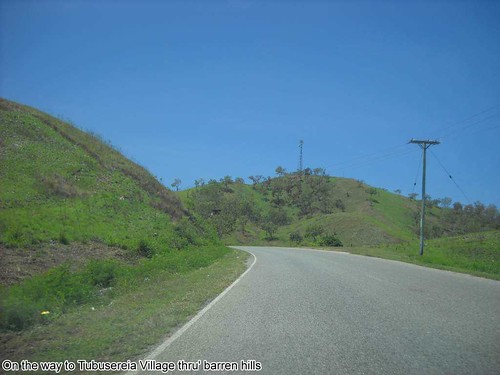
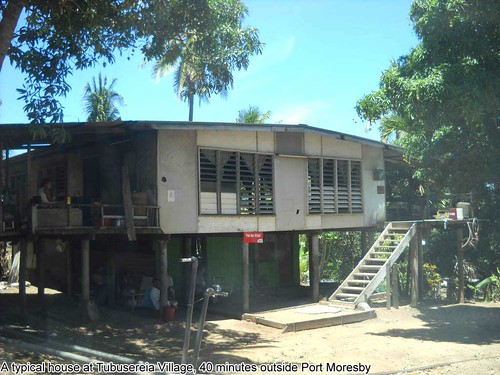

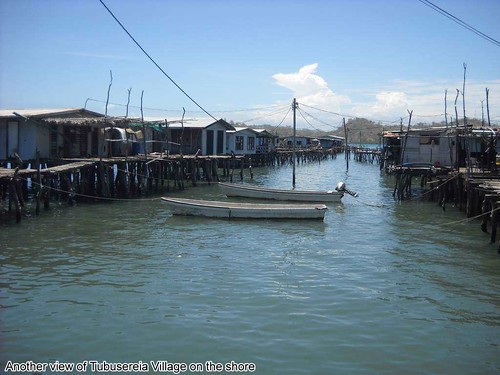

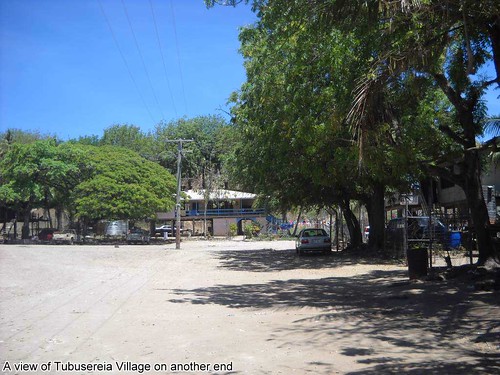
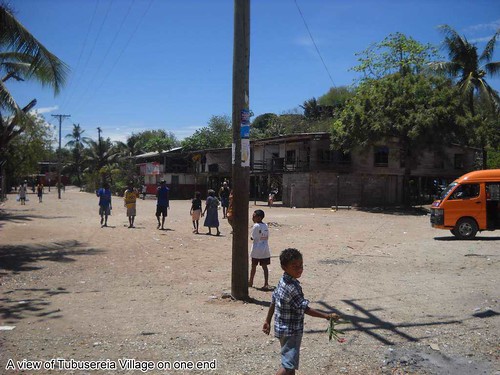
I Love My Home... Missing U Tubsy Vil.
ReplyDeletehaving my holiday but soooo happy to see photos of my home sweet home
ReplyDeletecarmel RakaNou
Miss my home sweet home,,,,wish mi stap klostu lo ples....
ReplyDeleteHomie......
ReplyDeleteEGU HANUA...Tai ese eme abigu:(:(missing home badly...xoxox
ReplyDeleteMy village,my home,my hope,my ambition,my love...
ReplyDeleteHome is where the heart is... thanks for the lovely
ReplyDelete